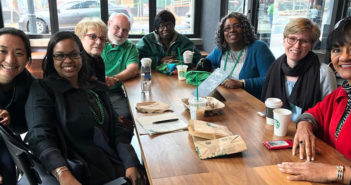
4 Ways to Build Your Social Media Presence
The use of social media is so prevalent today that it is essential for churches to master ways of creating connections and community online. Lia…
Subscribe free to "Leading Ideas" at churchleadership.com/leadingideas. Every Wednesday, "Leading Ideas" delivers information, resources, and strategies for forward-thinking church leaders.

The use of social media is so prevalent today that it is essential for churches to master ways of creating connections and community online. Lia…

To reshape the future of your church you must set aside old assumptions, fears, and stereotypes and embrace new experiences and methods. In the new…

Unique challenges arise when a church is served by a pastor from a different racial or cultural background or as it struggles to engage a…

How do you do ministry with people who don’t look like you, sound like you, or think like you? Listen as Lewis Center Director F.…

Reaching a new generation requires a new conversation. Congregations say they want to reach new and younger people, many of whom are simply turned off…

God told Jeremiah “to uproot and to tear down, to destroy and to overthrow, to build and to plant.” These biblical directions are the definition…

Churches have long assumed that new people would engage their congregations by first attending worship. When they are not growing and attracting new people, people…
This article is reprinted by permission from Leading Ideas, a free e-newsletter from the Lewis Center for Church Leadership of Wesley Theological Seminary available at churchleadership.com.